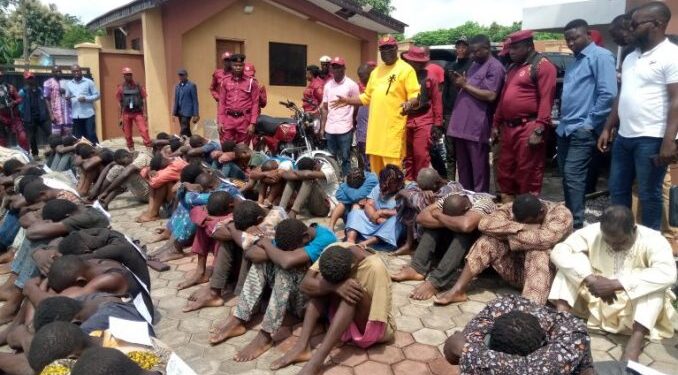The State Commander of the Amotekun Corps, Mr Adetunji Adeleye, made the disclosure while parading the suspects before newsmen on Monday in Akure.
Adeleye said that the suspects, including four alleged kidnappers, were arrested in different parts of the state.
He said that the suspected kidnappers and other gang members still on the run had for long been terrorising villagers in Ikakumo-Akoko.
“We also arrested a major member of a syndicate that specialises in killing commercial motorcycle riders, after robbing them.
“We went as far as Kogi and Edo, before we were able to track and arrest the suspect, who is here on parade.
“He has confessed to stealing so many motorcycles in the last five years in Akure, Ogbese and Uso .
“He said he has lost count of the number of motorcycles stolen, and after dispossessing their owners of them, dismantles them, and takes the parts out of the state in pieces,” the commander said.
Adeleye said that the command’s personnel also arrested five suspects who specialise in stealing household equipment and foodstuffs.
Equally arrested were suspects, who allegedly broke into a shop and stole mattresses, which were sold between N5000 and N10,000.
The commander further said that the recent establishment of the Amotekun Rangers had yielded positive results as some suspected criminals have been arrested in forests bordering the state with Edo and Kogi.
(NAN)











